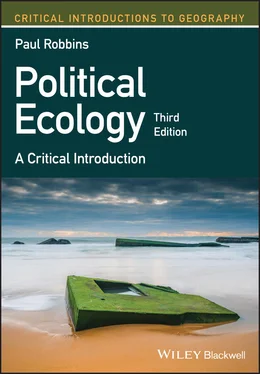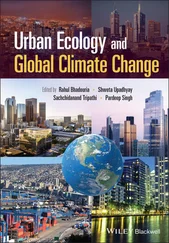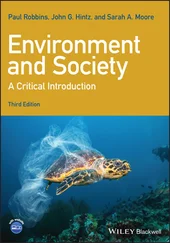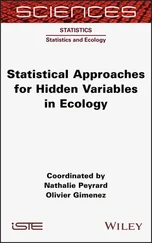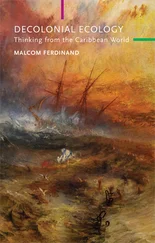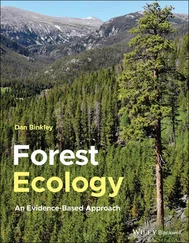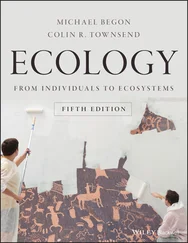1 Cover
2 Preface to the Third Edition
3 Acknowledgments
4 Introduction The Goals of the Text The Rest of the Book
5 Chapter 1: Political versus Apolitical Ecologies What is Political Ecology? Five Dominant Narratives in Political Ecology
6 Chapter 2: A Tree with Deep Roots The Determinist Context The Building Blocks
7 Chapter 3: The Critical Tools Common Property Theory Marxist Political Economy The Producer is the Agent of History: Peasant Studies Feminist Political Ecology Breaking Open the Household: Feminist Development Studies New Feminist Political Ecologies Whose History and Science? Postcolonial Studies and Power/Knowledge Emerging Concerns: Cities, Subjects, and Objects Governmentality and the Creation of Subjects Objects, Actor‐networks, and the Problem of Materiality Towards Political Ecology
8 Chapter 4: Political Ecology Emerges Political Ecology is not a Theory or a Method Political Ecology is a Community of Practice Political Ecology is the Quality of a Text Winning and Losing Human–Non‐Human Dialectics Starting from, or Ending in, a Contradiction Claims about the State of Nature and Claims about Claims about the State of Nature The Power of Political Ecology: The Hatchet and the Seed
9 Chapter 5: Challenges in Ecology The Focus on Human Impact Defining and Measuring Degradation Limits of Degradation: Variability, State‐and‐Transition and Ecological Novelty Methodological Imperatives in Political Analysis of Environmental Change
10 Chapter 6: Challenges in Social Construction Why Bother to Argue that Nature (or Forests or Land Degradation …) is Constructed? “Barstool” Biologists and “Hysterical Housewives”: Attacking and Defending Local Environmental Knowledge Methodological Issues in Political Analysis of Environmental Construction From Production to Co‐Production
11 Chapter 7: Challenges in Explanation Meetings in the Forest The Challenge of Land Change Science The Challenge of Causal Explanation Towards a Dialogue in Co‐Production
12 Chapter 8: Degradation and Marginalization The Argument The Evidence Evaluating the Thesis Research Example: Common Property Disorders in Rajasthan
13 Chapter 9: Conservation and Control The Argument The Evidence Evaluating the Thesis In the Field: The Biogeography of Power in the Aravalli
14 Chapter 10: Environmental Conflict The Argument The Evidence Evaluating the Thesis Research Example: Gendered Landscapes and Resource Bottlenecks in the Thar
15 Chapter 11: Environmental Subjects and Identities The Argument The Evidence Evaluating the Thesis In the Field: “Lawn People” as Environmental Subjects in the United States
16 Chapter 12: Political Objects and Actors The Argument The Evidence Evaluating the Thesis In the Field: Do Mosquitoes Manage Bureaucracies?
17 Chapter 13: Political Ecologies of the Future? Less is More: Degrowth More is Less: Modernist Ecosocialism Neither More nor Less: The Shadows of Utopia and Dystopia In the Meantime …
18 Bibliography
19 Index
20 End User License Agreement
1 Chapter 1 Table 1.1 Defining political ecology. Table 1.2 Who is overpopulated? Comparative per capita consumption of resourc... Table 1.3 Five theses of political ecology and the things they attempt to exp...
2 Chapter 4Table 4.1 Concepts and Processes in Political Ecology.
3 Chapter 6Table 6.1 Ifugao Categories of Land Types and Succession Patterns (based on d...
4 Chapter 7Table 7.1 Lessons from, and Limitations of, Other Modes of Explanation from t...
1 Chapter 1 Figure 1.1 Wildebeest crossing the Mara River in Kenya. The migration of wil...
2 Chapter 2 Figure 2.1 Julian Steward's cultural ecology. Figure 2.2 Barney Neitschmann with Miskito militants in eastern Nicaragua, 1...
3 Chapter 3 Figure 3.1 Indigenous cattle of Odisha, India. Though lower in productivity ...Figure 3.2 Watts' moral economy of famine in Hausaland and Sokoto.
4 Chapter 4Figure 4.1 Jason deCaires Taylor's underwater work: Anthropocene. The figure...Figure 4.2 The chain of explanation.
5 Chapter 5Figure 5.1 Plantation forests tend to be even aged and evenly spaced; their ...Figure 5.2 (a) Anabel Ford recognizing valuable volunteer plants in Zacarias...Figure 5.3 State and transition for ecosystems in the Mkambati area.Figure 5.4 Types of ecosystem that develop under varying levels of biotic an...
6 Chapter 8Figure 8.1 Environmental worker rescuing an oil‐covered brown pelican ( Pelec ...Figure 8.2 Cotton yields in Mali. Since the 1990s, the push for increased co...Figure 8.3 Deforestation in Brazil, aerial view of a large soy field eating ...
7 Chapter 9Figure 9.1 A “paper” showing the trawling routes of boats in one section of ...Figure 9.2 Agricultural burning in Madagascar. View from the space shuttle D ...Figure 9.3 Explaining unintended land cover consequences of conservation in ...
8 Chapter 10Figure 10.1 A population and building boom across the American west has led ...Figure 10.2 Change in available household reproductive resources for a sampl...
9 Chapter 11Figure 11.1 A local herder pleads his case for forest use at a contentious l...Figure 11.2 The American lawn covers an area larger than the state of Michig...
10 Chapter 12Figure 12.1 Monsanto seed company ownership ties. The global seed industry i...Figure 12.2 The mosquito life cycle. Each phase of reproduction invites diff...
11 Chapter 13Figure 13.1 The evolution of Wisconsin's dairy industry. Wisconsin Milk Mark...Figure 13.2 The “box” style robotic milker provides feed based on the indivi...
1 Cover
2 Table of Contents
3 Begin Reading
1 ii
2 iii
3 iv
4 vi
5 vii
6 viii
7 ix
8 1
9 2
10 3
11 4
12 5
13 6
14 7
15 8
16 9
17 10
18 11
19 12
20 13
21 14
22 15
23 16
24 17
25 18
26 19
27 20
28 21
29 22
30 23
31 24
32 25
33 26
34 27
35 28
36 29
37 30
38 31
39 32
40 33
41 34
42 35
43 36
44 37
45 38
46 39
47 40
48 41
49 42
50 43
51 44
52 45
53 46
54 47
55 48
56 49
57 50
58 51
59 52
60 53
61 54
62 55
63 56
64 57
65 58
66 59
67 60
68 61
69 62
70 63
71 64
72 65
73 66
74 67
75 68
76 69
77 70
78 71
79 72
80 73
81 74
82 75
83 76
84 77
85 78
86 79
87 80
88 81
89 82
90 83
91 84
92 85
93 86
94 87
95 88
96 89
97 90
98 91
99 92
100 93
101 94
102 95
103 96
104 97
105 98
106 99
107 100
108 101
109 102
110 103
111 104
112 105
113 106
114 107
115 108
116 109
117 110
118 111
119 112
120 113
121 114
122 115
123 116
124 117
125 118
126 119
127 120
128 121
129 122
130 123
131 124
132 125
133 126
134 127
135 128
136 129
137 130
138 131
139 132
140 133
141 134
142 135
143 136
144 137
145 138
146 139
147 140
148 141
149 142
150 143
151 144
152 145
153 146
154 147
155 148
Читать дальше
